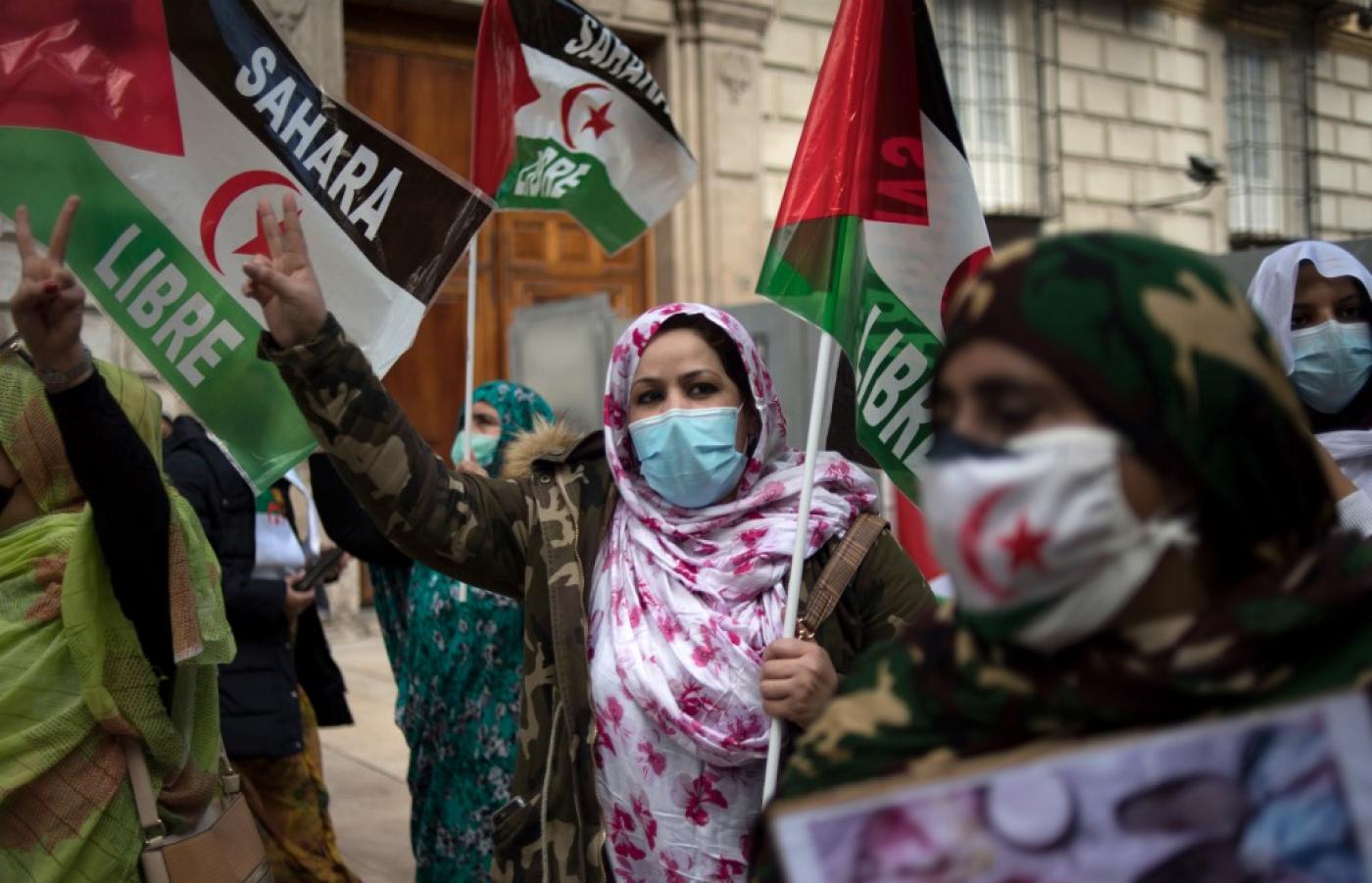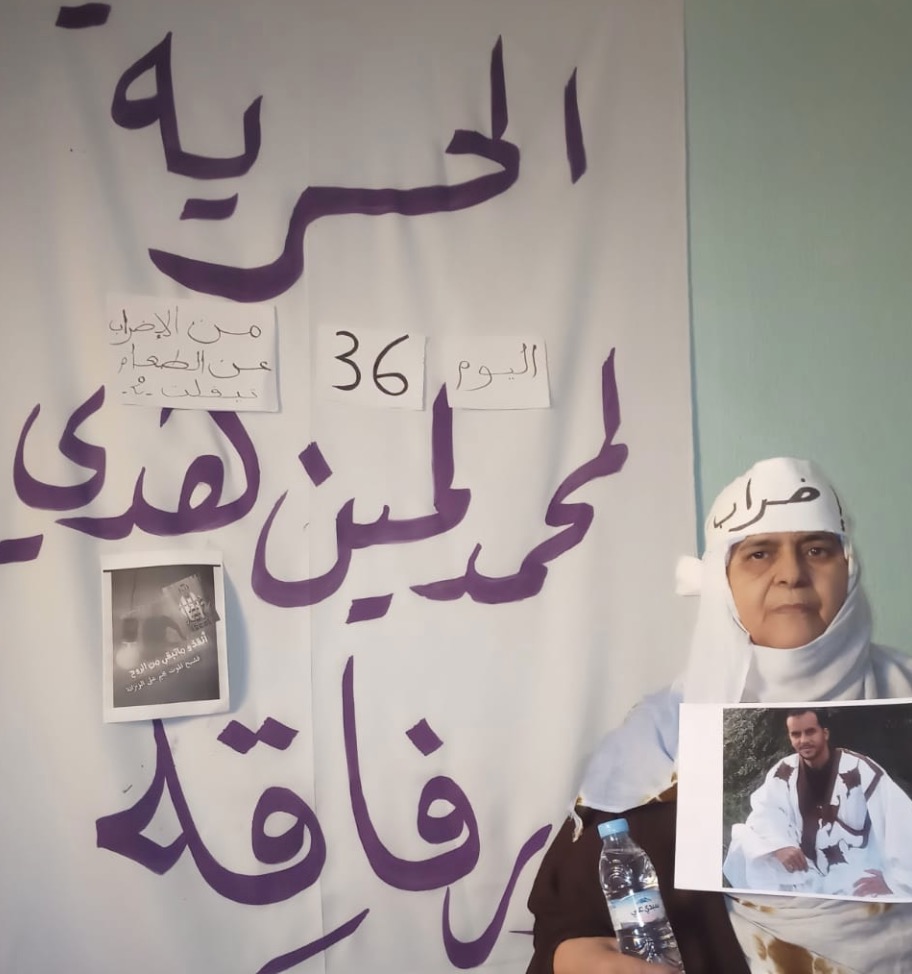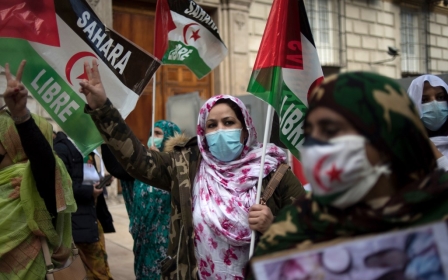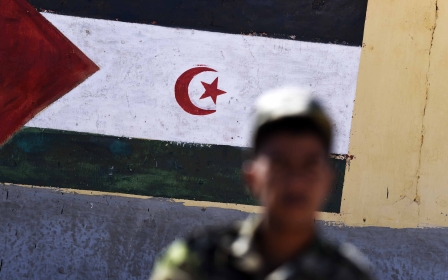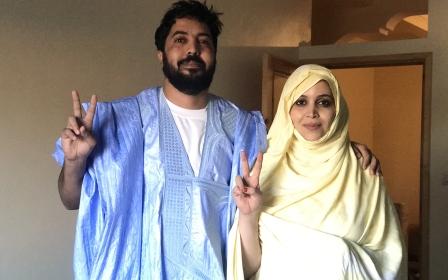Western Sahara activists facing crackdown following Morocco-Israel deal
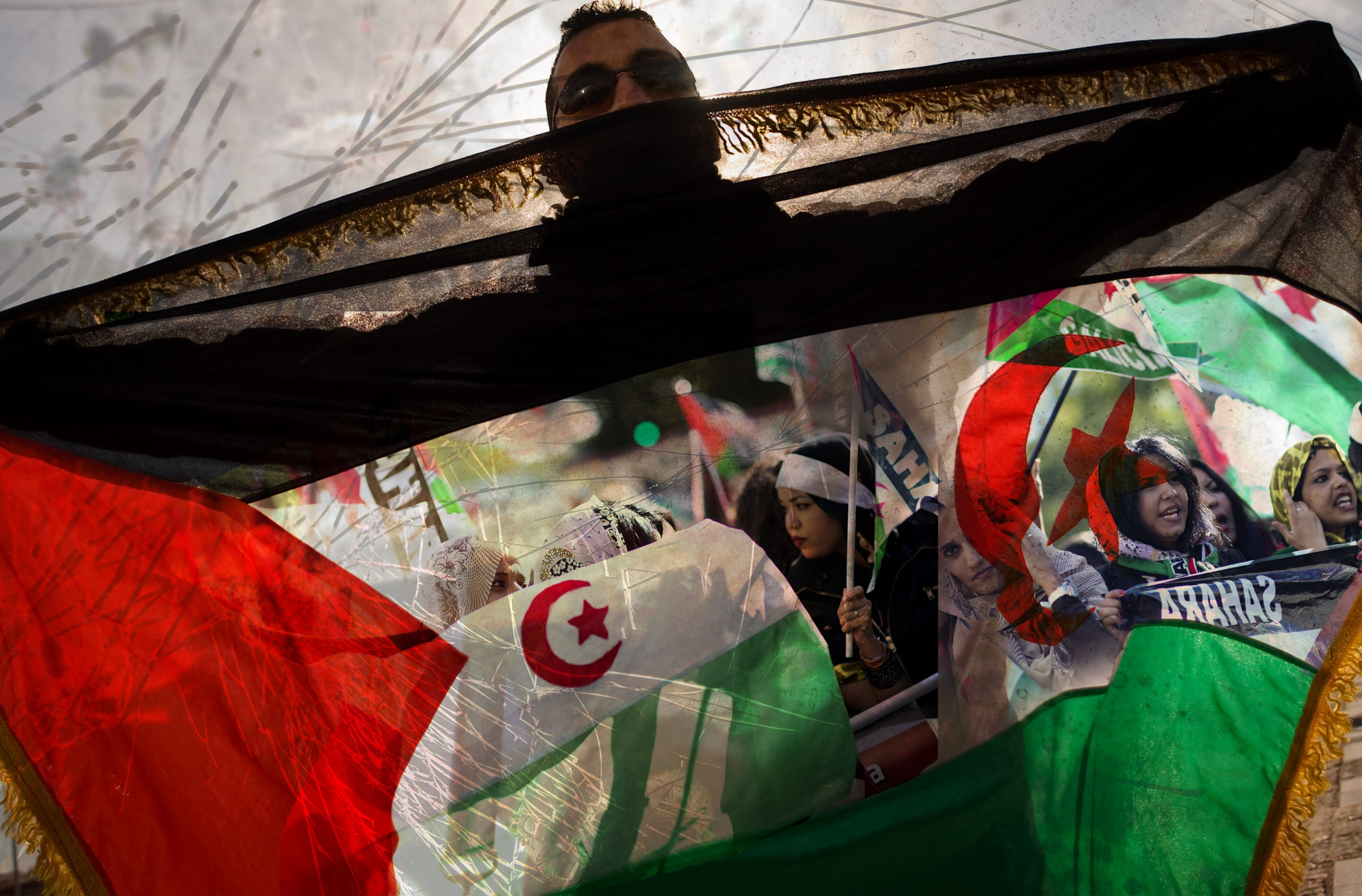
Activists in Western Sahara say they are facing a brutal crackdown in the wake of Morocco's normalisation deal with Israel.
US recognition of Morocco’s sovereignty over the Western Sahara has, the activists say, emboldened authorities to carry out abuses against ordinary citizens and those who oppose the decision.
Mahmoud Lemaadel, who regularly sheds light on violations in the region, said that in recent weeks there had been an unprecedented number of attacks on activists and campaigners.
“The normalisation deal and the US administration’s recognition of Morocco’s sovereignty over the Western Sahara has encouraged Morocco to carry out more human rights abuses against Sahrawis,” he told Middle East Eye.
“Since that point, Morocco has launched an arbitrary campaign targeting human rights activists and also citizens who have nothing to do with any type of activism."
Lemaadel explained that since the US recognition of Moroccan sovereignty, citizens have been stopped in the streets and questioned about their thoughts on Morocco, and the kind of videos they have been watching.
“Everyone is curious about what is happening on the front lines, so Morocco is trying to cover and hide everything happening at the military locations. Activists have their homes under constant surveillance and some have had their homes raided by Moroccan forces," he said.
Continuous repression
Western Sahara, a former Spanish colony, was claimed by the newly-independent Morocco in 1957 and is believed to have significant offshore oil reserves and mineral resources.
Its indigenous population has fiercely rejected Moroccan control, however, and between 1975 and 1991 the Polisario Front fought an insurgency against Rabat's presence.
Polisario estimates the indigenous population of Western Sahara to be between 350,000 and 500,000 and has long called for their right to a referendum on independence, something that has also been promised by UN resolutions.
Polisario has repeatedly accused Morocco of exploiting the region's natural resources while half of its population await a referendum in camps and in exile.
In December, Morocco became the fourth Arab country to establish full diplomatic ties with Israel, following the UAE, Bahrain, and Sudan.
At the time, former US President Donald Trump and his son-in-law and senior adviser, Jared Kushner, confirmed that the recognition of Moroccan sovereignty over the Western Sahara was linked to the normalisation deal with Israel.
Trump said that the decision was intended to give people an opportunity to live a better life and to strengthen the US relationship with Morocco.
Sahrawi activist Mohamed Elbaikam said that the decision had instead resulted in "stronger, more intense and continuous" repression.
“This is done in order to prevent any voice that could disturb this new American position,” he explained to Middle East Eye.
“Therefore, the people of Western Sahara are under unprecedented military and security siege and pressure these days, especially as the Gulf countries have shown support to the Trump proclamation."
Elbaikam also highlighted other ways activists have been targeted in recent weeks. “Salaries of human rights activists have been cut off or frozen, their family members are often threatened and there have been several examples of phones hacked and exposed,” he said.
Equipe Media journalist and activist, Nazha El-Khalidi, said that the US administration’s decision will likely have a negative impact on a region that is already riddled with conflict.
“We Sahrawi people do not want to be the scapegoat for any relationship that binds one state to another... the bridge between Morocco and Israel has been built over the blood of Sahrawi people,” she said.
“Trump’s decision has given a green light to more violence towards Sahrawi people... authorities are even transforming our houses into prisons. Right after Trump’s proclamation, all houses of activists came under constant surveillance."
However, despite the intense crackdown, Khalidi maintains hope that under new US President Joe Biden, things could improve.
“We still have a little hope towards Biden’s administration to correct the US decision.”
Mohamd Lemain Haddi, 41, is a Sahrawi activist who has been on hunger strike for over 38 days to protest against deteriorating prison conditions and a lack of healthcare. He was detained in 2010, alongside many others, after taking part in a protest. He was sentenced to 25 years in prison on charges of forming the group Gdeim Izik, a protest camp.
Haddi is allowed to speak to his family once every week, for one minute, but his health has weakened significantly due to his hunger strike.
His brother, Ali Haddi, 34, expressed concern over his condition.
“We have deep concerns and fear losing our brother, who is serving 25 years in Tiflet prison and has been on hunger strike for a long time. We call on the international community to pressure Morocco, in order to save his life as soon as possible,” he told Middle East Eye.
His mother has also called on the international community to put an end to her grief and the sentencing of her son as well as other activists.
“My son is not a criminal to be isolated from the world in solitary confinement with his very critical health situation,” she told the Nushatta Foundation, a youth organisation that monitors human rights in the region.
“He is hardly able to speak, and his mum can’t understand what he’s saying because he’s so weak. He loses consciousness all the time,” said Lemaadel.
According to Lemaadel, once detained by authorities, the activists are then given vague or made up charges to keep them behind bars.
Last week, Sahrawi activist Ghali Bouhla, 33, was abducted by Moroccan forces in the city of Laayoune, also charged with being in possession of drugs.
In a video, which was widely circulated online, masked policemen could be seen trying to enter his family’s home.
Boulha’s mother could be heard shouting in desperation that only her and her daughter were home and she can’t let them in.
In another example of the brutal crackdown, Sultana Khya, 41, was put under house arrest for over 88 days for attending a Sahrawi demonstration.
In disturbing footage shared online, she is dragged out of her home by uniformed security forces while screaming. Photos showed her face severely injured, with bruises and a black eye.
According to the Nushatta Foundation, Khya had her eye gouged out by authorities in 2007 after she participated in a student protest organised by Sahrawis in Marrakesh. Since then, she has also been violently abused.
In a statement made to Middle East Eye, the rights organisation expressed fears over her situation.
“We are strongly denouncing the violence that Sultana and other Sahrawis are experiencing at the hands of Moroccan occupying forces, in retaliation for their activism and support of Western Sahara independence.
We remain stuck here and have become an easy prey to Morocco while war is taking place on the fronts."
This article is available in French on Middle East Eye French edition.
Middle East Eye delivers independent and unrivalled coverage and analysis of the Middle East, North Africa and beyond. To learn more about republishing this content and the associated fees, please fill out this form. More about MEE can be found here.


